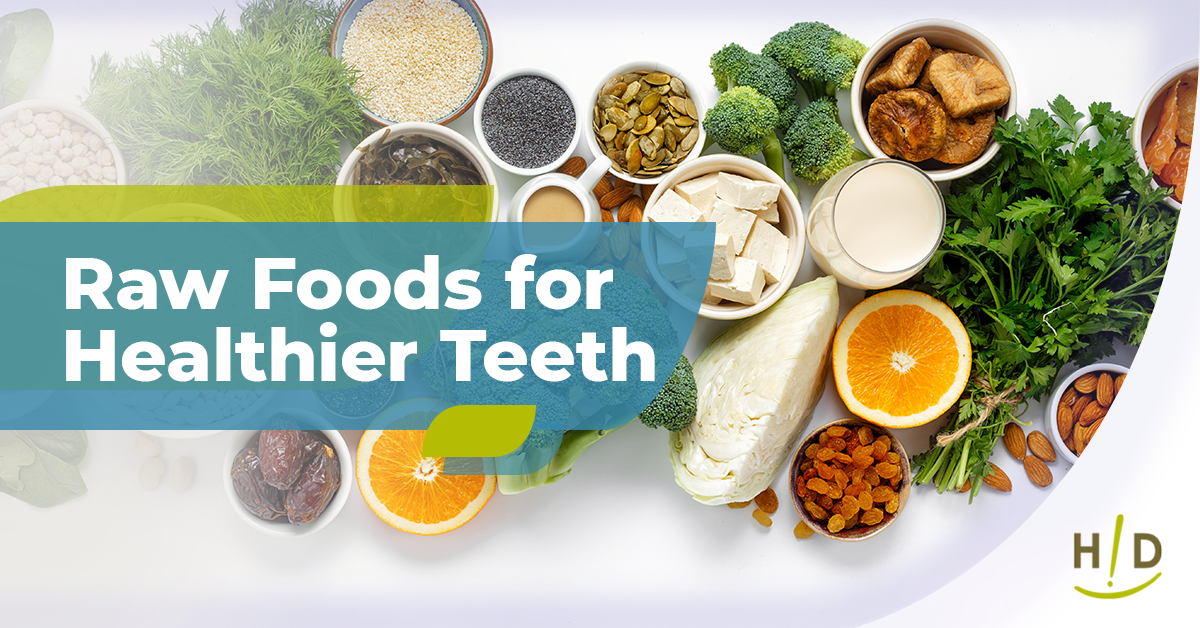You've probably found out recently that raw foods, especially raw high-acidity fruits and juices, may be affecting the enamel of your teeth, thus affecting your dental health. When we consume foods, fruits, or juices high in acid like grapefruit, oranges, limes, lemons, or tomatoes, the acidity inside our mouths increases. This acidity hike can begin to break down tooth enamel, which is the protective layer keeping our dentin, the inner portion of our teeth, safe. Acidic foods erode calcium, which is a crucial part of our tooth enamel. When erosion of enamel begins, it is called demineralization. Our saliva is a neutralizer meant to equalize the acidity in our mouths and protect this enamel. Still, if we consume many acidic foods and brush our teeth immediately after, we may end up doing more damage than good.
We know how to be cautious and minimize fruits, juices, and foods high in acidity to prevent further damage to our teeth and the enamel. But what about the raw foods that are good for your teeth? Are there any? What foods can help us maintain enamel or dental health? What should we eat more of to promote healthier teeth and a healthy body?
#1 Foods Rich in Calcium
One of the essential foods to eat to help maintain your dental health and the bones in your body is foods rich in calcium. Calcium is the most abundant mineral found in our bodies that performs several vital roles. Necessary for bone health, teeth, cardiovascular and muscle function, and nervous system signaling. Calcium also acts as a coenzyme (a nonprotein compound that is needed for functioning enzymes) Calcium is critical for the development and maintaining our bone structure and function. 99% of all the calcium in our body is stored within our bones, including our teeth, as they are also bones. Thus, behave like a reservoir for calcium, releasing more of the mineral when needed. Additionally, calcium is not something we can produce independently, so we need to ensure we obtain it through our diets. Without the proper amount of calcium, not only are our bones affected, but also our teeth. A diet too low in calcium can lead to our bodies leeching the needed calcium from both teeth and bones, which increased tooth decay and cavities. Additionally, calcium-deficient diets may significantly increase your risk of periodontal (gum) disease and risk the health of your jaw bone. Low levels can also cause weakening or loosening of your teeth, leaving you at even more severe risk of gum disease. With that said, here are some recommended calcium-rich foods to help your body, bones, and teeth that aren't just dairy:- Poppy, sesame, celery, and chia seeds. For example, one tablespoon (9 grams) of poppy seeds provides 126 mg of calcium, which is roughly 13% of the recommended dietary intake.
- Dark leafy greens like kale, spinach, romaine lettuce, and arugula. These leafy greens are also rich in magnesium and vitamin K which are also needed for strong bones and teeth.
- Almonds. An ounce of almonds has 76 mg of calcium and 76 mg of magnesium.
- Winged beans, white beans, and lentils.
- Following the Hallelujah Diet using whole foods and vegetable juices will provide you with an ample supply of calcium and the other nutrients necessary for healthy bones and teeth. Just don't forget the leafy greens, vegetable juice, nuts, seeds and legumes.
#2 Foods Rich in Vitamin D
It's also important to understand that calcium and vitamin D(2) work together in promoting bone and dental health. So not only should you add foods rich in calcium, foods with vitamin D are just as important. Calcium can only reach its full bone-building potential if your body is getting enough vitamin D. Calcium and vitamin D work together in building bones—calcium helps build and maintain them. In contrast, vitamin D is the crucial element that allows your body to absorb it effectively. So even if you are eating a calcium-rich diet, your body will probably not absorb it correctly if you're vitamin D deficient. What are sources of vitamin D best for you? Here are a few of the top recommendations:- Sunlight is the main source of vitamin D for many people. However, limit your sun exposure so you do not get sunburned and be mindful that sunscreen also limits the production of vitamin D.
- 1 cup of Crimini or Chestnut Mushrooms, which have been exposed to UV light, provides 139% DV of vitamin D.
- Soy, almond, oat, and vitamin D milks fortified at 1 cup provide 13-18% DV.






